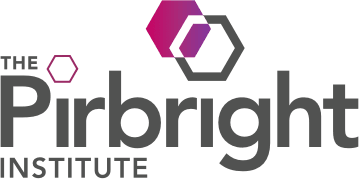Our group
Sustainable growth of the poultry industry as a major source of proteins provided by poultry meat and eggs is critical for the global food security. A major challenge for this comes from a plethora of diseases, particularly those caused by a number of major avian viral pathogens. Among the avian diseases, neoplastic diseases (cancers) induced by pathogens such as Marek’s disease, avian leukosis and reticuloendotheliosis viruses (MDV, ALV and REV) are hugely important both in relation to economic losses and animal welfare. As has been demonstrated in a number of classical examples, these diseases are also valuable models for unravelling molecular mechanisms in the induction of cancer.
In the Viral Oncogenesis group, our research is focused on examining the molecular interactions between oncogenic viruses and their target avian hosts to help understand the complex pathways that drive the transformation of a normal cell into a cancer cell. Genetic diversity of avian pathogens, including oncogenic viruses, remains a major challenge in developing sustainable control strategies. Better understanding of the factors that drive viral diversity, including those from currently used vaccines, is also a major research interest of the group.
Our aims
The major aims of the group are to understand (1) the functions of the viral genes that contribute to the oncogenicity and other biological features of avian oncogenic viruses, (2) the nature of the virus-host interactions associated with viral latency and pathogenesis, and (3) the features of the avian immune system that enable it to respond to oncogenic virus infection or to the different types of vaccines.
Currently the major focus of research is on Marek's disease (MD), a highly contagious T-cell lymphoma in poultry caused by MDV, a member of the family Herpesviridae. Through the application of reverse genetics on full length genomes of MDV cloned in bacterial artificial chromosome (BAC) vectors and CRISPR/Cas9-based gene editing approaches, we examine the functions of viral genes both in vitro and in vivo. Using excellent models of Marek’s disease induced by wild type and modified viruses in the target chicken hosts, we study the dynamic changes in the genome, epigenome, transcriptome, proteome in tumours and cell lines derived from them to gain insights into the molecular virus-host interactions.
As one of the first examples of vaccines against cancer, MD vaccines have been used successfully worldwide for more than 40 years. However, despite its efficacy in protecting against the disease, MDV strains continued to show increase in virulence, challenging the sustainability of the vaccination strategy. The group’s research efforts in this area include investigation into the role of vaccines in driving virulence and developing novel vaccines and intervention strategies for control.
Research focus on other oncogenic viruses ALV and REV is also to ascertain the viral determinants of pathogenicity and genetic susceptibility to infection, as well as to determine the virus-host interaction in relation to virus-induced oncogenesis.
Our research
- Most of the research on MD to identify the viral determinants of pathogenesis, virus-host interactions and immune response is carried out as part of The Pirbright Institute Strategic Programme Grant (BB/PO16472/1 & BB/PO16057/1) (2017-2023)
- BBSRC-funded project (BB/R007896/1) on ‘Dissecting the molecular pathways of MDV oncoprotein Meq for understanding pathogenesis and vaccine development (2018-21).
- BBSRC-funded project (BB/R012865/1) “UK-China partnership on Global Food Security: Combating avian tumor diseases for sustainable poultry production” UK-China-Philippines-Thailand Swine and Poultry Research Initiative by BBSRC-Newton Fund (2018-21)
- Newton Fund Project on ‘Sino-British Centre for Research on Avian Diseases’ (https://www.uk-china-cerad.org/) between Pirbright and Shandong-Binzhou Animal Science Academy (2015-22).
- The Royal Society International Research Professorship on the project ‘Innovations in control of avian infectious diseases for sustainable growth and food security in low- and middle-income countries’ between Pirbright and Seoul National University, South Korea (2016-21)
- BBSRC-funded project (BB/V017748/1)US-UK Collab: The consequences of transmissible vaccines on disease ecology and pathogen evolution: Marek's disease virus as a case study (2021-24)
Our impact
Avian oncogenic viruses such as avian leukosis and Marek’s disease viruses are major causes of cancer in chickens worldwide. With major economic losses and welfare implications, controlling these diseases is critical for sustainable growth and increased productivity of the poultry industry. Our research in this area that led to the eradication on avian leukosis virus belonging to the subgroup J from UK primary breeder flocks has helped safeguard an estimated 3,200 jobs and £400m. We also host the OIE Marek’s Disease Virus Reference Laboratory.
Our international collaboration has major impact on China and other ODA countries (British and Chinese scientists join forces to fight avian diseases). We joined with Shandong Binzhou Animal Science and Veterinary Medicine Academy to establish the UK-China Centre of Excellence for Research on Avian Diseases (CERAD), a network of academic institutions enabling scientists to carry out fundamental and applied research in improving poultry health in both countries.















